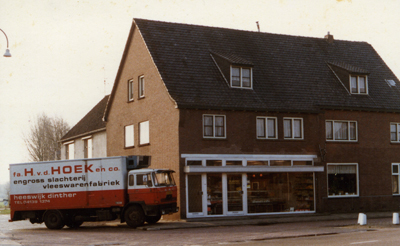| Introduction and occasion |
| |
| This book if for parents, policymakers and employees from areas which have a (related) educational task. Students, counselors, teachers and management from pre-school stages, education (primary education, secondary education, vocational education and colleges), welfare work, police and justice. But also (non-professional) counselors in neighbourhood, sports and youth clubs can be inspired. |
| |
| In this book ‘Sustainable Educating and Developing’ is talked about. That is an ecological approach. In that way the relationship between children and counselors and the environment is always looked at in coherence. |
| |
| The word ‘counsellors’ is chosen for all those who participate. In those places where it is
described explicitly for instance from an educational setting teachers from primary or secondary education are speaking. The word children has been chosen for instead of pupils, students etc. except when from the context it is meant differently. |
| |
| The examples are many-sided and originate from different domains. They can function as insight, metaphor and inspiration for other areas of work. |
| |
| Of course an ecological approach of durability issues is about the coherence of all domains. However, this book offers primary insights and perspectives for those who are confronted with educational and development issues. |
| |
| In this book I have tried to tell a big story. The story of the educational possibilities in all kinds of different situations. Bringing up and developing durably means for me that you have a view on your own life and that from there you relate openly to the other person. This book contains many small anecdotes which tell the big story. Because big sometimes seems everything, but small sometimes tells it precisely. A metaphor is often more direct and more understandable than an abstract discourse. The big story must house small stories and the small stories must be safe in the big story. So never ask: “May it be something more?” |
| |
| |
| |
| |
| |
| |
| |
| |
| |
| |
| |
| |
| May it be something more? |
| |
| About a small Christian children’s drama |
| |
 |
| |
| I was six, a butcher’s son and happy. Those were the days before Christmas. On the glass door of the shop at the St. Servatiusstreet in Heeswijk-Dinther it said in gold letters: ‘Butcher H. v.d. Hoek and co.’’ It always smells of meat, but in those days also of meat rolls. Everybody worked night and day to prepare the large number of orders. The stairs behind the shop were full of white plastic bags full of luxury meats and sausages, the best steaks, fondue plates and sauces. All bags were numbered. To give the villagers an impression of success we numbered from 100. There were a great many of them and you would think that there were even more. |
| |
| In the living-room the Christmas tree was waiting undecorated for a dressing-up party. I was walking through the corridor to the shop. My mother was wiping her hands on her apron while she called me. With a light blow she opened the cash drawer and pulled out a 25 guilders note. I might buy the decoration for the Christmas tree. Carefully I folded the note, put it into my trouser pocket as deep as possible and ran to my bike. |
| |
| When the shop bell of ‘Andre Habraken’ sounded, I saw two men in dust-coats. An old one and a very old one. The old one approached me while smiling and asked what I was looking for. While he preceded me into the direction of the displayed Christmas decoration I saw between the dust-coats a big, scarlet Christmas tree ornament. It was shining like the star of Bethlehem above everything which did not really matter. I asked for the price. Just below 25 guilders. The dust-coats offered me a range of possibilities for the same amount. Everything in silver or just a lot of colour, birds that really moved and angels with wavy hair. But the glistening of that one, big, scarlet ball blinded the sight on the rest. |
| |
| The way to the shop with a capital in my pocket was not a memory anymore when I cycled back with the biggest treasure I had ever possessed. With one hand on my handlebars I manoeuvred the loot home carefully. Leaving my bike behind on the ground I carried the box with the ball through the workshop and the corridor to the shop. The shop was crowded. My mother turned around and looked surprised. The opened the box and said: “One ball? For 25 guilders? No, it has to be much more!” |
| |
| I had rather sunk into the ground with the ball. In the corridor I heard her asking someone: “May it be something more?” The way back to the dust-coats lasted a hundred times longer than the first time. With a bag full of shiny fatuities I returned home. I had a lot, but all in all less than everything. “May it be something more?” it was buzzing in my head. |
| |
| More than everything was a bag full of nothing. I was six, a butcher’s son and unhappy. Christmas always had a message. Or rather messages: bags full of them! |
| |
| |

